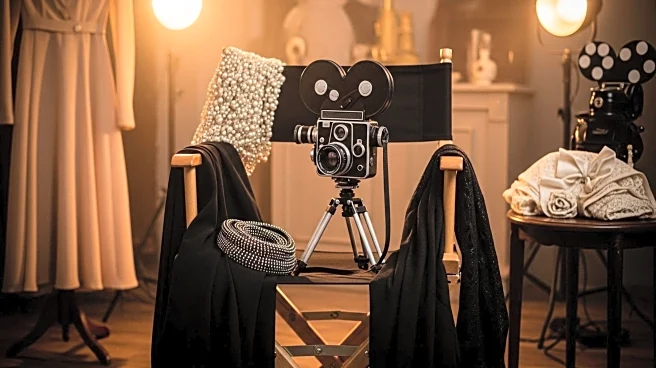What is the story about?
What's Happening?
Nia DaCosta has reimagined the classic stage play 'Hedda Gabler' into a 1950s set costume drama, starring Tessa Thompson as Hedda Gabler. The film explores the internal struggles of Hedda, a newlywed dissatisfied with life, who manipulates her guests at a lavish party she cannot afford. DaCosta chose the 1950s setting to connect with audiences through a decade still relevant today. The film features an original song by composer Hildur Guðnadóttir, with lyrics by DaCosta, emphasizing the collaborative nature of the project.
Why It's Important?
DaCosta's adaptation of 'Hedda' highlights the ongoing relevance of classic narratives in modern cinema, offering a fresh perspective on timeless themes of dissatisfaction and manipulation. By setting the film in the 1950s, DaCosta bridges historical and contemporary storytelling, potentially influencing future adaptations of classic works. The film's release could impact the industry by encouraging filmmakers to explore historical settings to address modern issues, thus broadening the scope of narrative possibilities in cinema.
What's Next?
The film 'Hedda' is set to hit cinemas on October 22, potentially sparking discussions on the adaptation of classic plays in modern settings. Industry stakeholders may watch for audience reception and critical reviews, which could influence future projects. The collaboration between DaCosta and Guðnadóttir may also lead to further partnerships in film music composition, enhancing the integration of music in storytelling.
Beyond the Headlines
DaCosta's choice to set 'Hedda' in the 1950s may reflect broader cultural trends in film, where historical settings are used to explore contemporary themes. This approach could lead to a resurgence in period dramas, offering filmmakers a rich tapestry of historical contexts to address modern societal issues. The film's focus on internal struggles and manipulation may resonate with audiences facing similar challenges today, highlighting the timeless nature of such narratives.
















